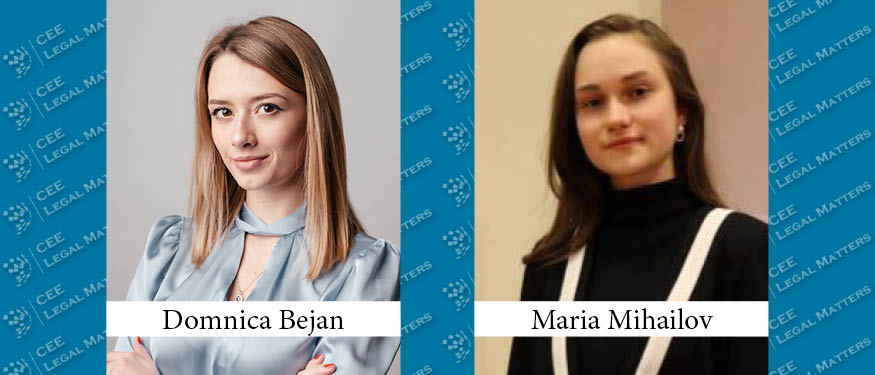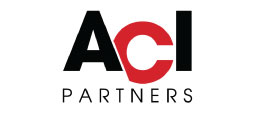This Legal Monitoring Report highlights key legislative developments in Moldova, including the launch of a grant program for tech start-ups, proposed excise duty reductions for small producers, extended paternity leave, enhanced protections for minor employees, regulation of temporary agency work, and time limits on meal voucher usage. Tax updates feature a new regime for freelancers, extended deductions for rural tourism and sports facilities, broader non-taxable income categories, and incentives for SMEs.
I. Corporate
Law:
- New Grant Program to Support Tech Start-ups
The Digital Innovation and Technology Start-up Support Program for 2025-2030 is launched by Moldovan Government, through which non-reimbursable financial aid is provided to tech start-ups, as follows:
- Early-stage start-ups (prototypes, with an annual turnover of less than MDL 5 million) are being offered grants covering up to 80% of project costs, to a maximum of MDL 500,000.
- Tech Start-ups with products or services at an early stage of commercialization (with an annual turnover of less than MDL 25 million) may receive up to 50% of project value, capped at MDL 2 million, provided that at least half of their co-financing comes from venture capital or crowdfunding.
These funds may be used for IT equipment, marketing, market studies, and cybersecurity.
II. Customs
Law:
- Digitalized Preferential Certificates of Origin
Economic operators may apply electronically for a preferential certificate of origin for goods. Digitalizing the process significantly reduces processing times and increases transparency and efficiency, offering operators instant access to all necessary information. The technological guidelines for the digital issuance of preferential certificates of origin can be accessed here.
Draft law(s):
- Excise Duty Reduction for Small Independent Producers Underway
A key provision of the draft law is the reduction of excise duty rates for small independent producers. Specifically, it offers a 45% reduction in excise duty for small independent producers of beer, sparkling wines, other fermented beverages (excluding beer and wine), and ethyl alcohol distilleries.
To qualify as a small independent producer, the following maximum production limits apply over the last 12 consecutive months:
- Beer: 200,000 hl
- Wine: 1,000 hl
- Fermented beverages (other than beer and wine): 15,000 hl
- Pure alcohol: 10 hl
III. Labour
Law:
- Paternity Leave and Allowance Entitlements for Multiple Births and Adoptions
In cases of twins or multiple children born from a single pregnancy, the father is entitled to up to 15 calendar days of paternity leave for each child. The same entitlement applies in the case of multiple adoptions. Moreover, a separate paternity allowance is granted for each twin born or adopted from a single pregnancy.
Draft law(s):
- New Rules for Protecting Minor Employees in Moldova
The draft law introduces new regulations to strengthen the protection of minor employees. Key provisions include the establishment of minimum daily rest periods of 14 consecutive hours for employees aged 15-16 and 12 hours for those aged 16-18 year. Additionally, a mandatory 30-minute meal break will be required for shifts longer than 4.5 hours. Employers will also be obliged to conduct detailed risk assessments tailored specifically to minors, implement appropriate health and safety measures, and ensure that parents or legal guardians are fully informed.
- Official Regulation for Temporary Agency Work
A significant advancement in Moldova's labour law is the official recognition and regulation of temporary agency work. The Labour Code will incorporate specific definitions and a brand-new chapter dedicated to this employment model. The new provisions will clearly delineate the rights and obligations of all involved parties: the temporary work agency, the user company, and the employee. The law will also establish clear rules ensuring temporary agencies are responsible for providing their temporary workers with proper health and safety information and conditions.
- Time Limitation Introduced for Meal Vouchers
The draft law introduces a six-month validity period for meal vouchers, starting from the date their nominal value is transferred to the employee’s payment instrument. The measure aims to ensure timely use for meal-related purposes and prevent the accumulation of unused funds.
It also allows electronic meal vouchers to be used for online payments in food retail establishments, improving employee access to food products and supporting the retail sector’s shift to online commerce.
IV. Tax
Draft law(s):
- New Tax Regime for Freelancers
Individuals providing services in fields of IT consulting, architecture, public relations, cleaning, photography, and similar areas will be able to operate as independent contractors (freelancers). They will be required to register with the Public Services Agency (ASP) but will not be obliged to maintain accounting records or submit tax, financial, or statistical reports.
A single tax rate of 15% will apply to annual income up to MDL 1,200.000 (VAT threshold), covering income tax, social security, health insurance, and local taxes. Income exceeding this threshold will be taxed at a single rate of 35% on the excess amount.
- Tax Deduction for Employee Compensation on Rural Tourism Accommodation and Sport Facilities
The Tax Code will be amended to allow the deduction of compensation paid to employees for visits to rural tourist facilities in Moldova, including through vacation vouchers, in an amount up to 50% of the average monthly salary. Employers will also be allowed to deduct expenses related to both sports facility subscriptions and tourist facility visits.
More here.
- Extending the Range of Non-Taxable Income
Allowances granted to young employees in key industries will be tax-exempt. Similarly, transportation and accommodation allowances provided to civil servants, public officials, and medical and pharmaceutical personnel who perform their duties in a locality different from their domicile—covering travel to and from work and/or accommodation rental—will also be exempt from taxation.
More here.
- Transaction Threshold and Transfer Pricing Documentation Requirements
Large companies engaging in transactions with affiliated parties will be subject to the new transfer pricing requirements only if their transactions exceed the MDL 20 million threshold. This measure aims to reduce unnecessary administrative burdens on businesses with minimal tax risk exposure.
More here.
- Tax Incentives for Small and Medium-sized Enterprises (SMEs)
A three-year tax holiday will be granted to SMEs, effective from the date of their registration, starting 1 January 2026. Eligible beneficiaries are SMEs that, during their first fiscal year, have at least one employee.
To benefit from the exemption, SMEs must submit annual financial statements and demonstrate genuine economic activity. If the MDL 5 million revenue threshold is exceeded during the tax holiday, the exemption will be automatically suspended starting the following year.
More here.
V. Environment
Draft law:
- Deposit-Refund System Proposed for Packaging in Moldova
The proposed deposit system requires producers or distributors to collect a refundable deposit on single-use or reusable beverage containers. Deposits are refunded to sellers when packaging waste is returned.
This applies to beer, cider, fruit wine, alcoholic and non-alcoholic fermented drinks, soft drinks, various waters, juice, and nectar, in single-portion containers sized between 0.1 and 3 litres.
More here.
VI. Digitalization
Law:
- New Digital Tax Management System for Independent Retailers
Moldova has launched a new Information System "Independent Activity” aimed at digitalizing and streamlining income tax management for self-employed individuals. The system will automate tax calculation, generate payment notices, and improve overall tax administration by integrating with existing government platforms for data exchange and payment processing.
More here.
VI. Others:
Draft law(s):
- Cash Transfers in National Currency by Banks – No NBM Authorization Required
Licensed and non-resident banks may introduce into or remove from the Republic of Moldova cash in the national currency without prior authorization from the NBM. This significant step marks the first phase of foreign exchange capital liberalization, a measure strongly recommended by the International Monetary Fund.
More here.
- Creation of "Moldova HiTech Park" – A National Multidisciplinary Innovation Hub
An advanced technology park "Moldova HiTech Park" shall be created in the Republic of Moldova – conceived as a multidisciplinary hub, with the status of an industrial park, which will integrate research and development activities, incubation of start-ups, attracting private investment, technology transfer, university education and continuing training. The Park will be a project of national importance and is intended to be created over a 30-year period.
More here.
By Domnica Bejan, Associate, and Maria Mihailov, Legal Assistant, ACI Partners




